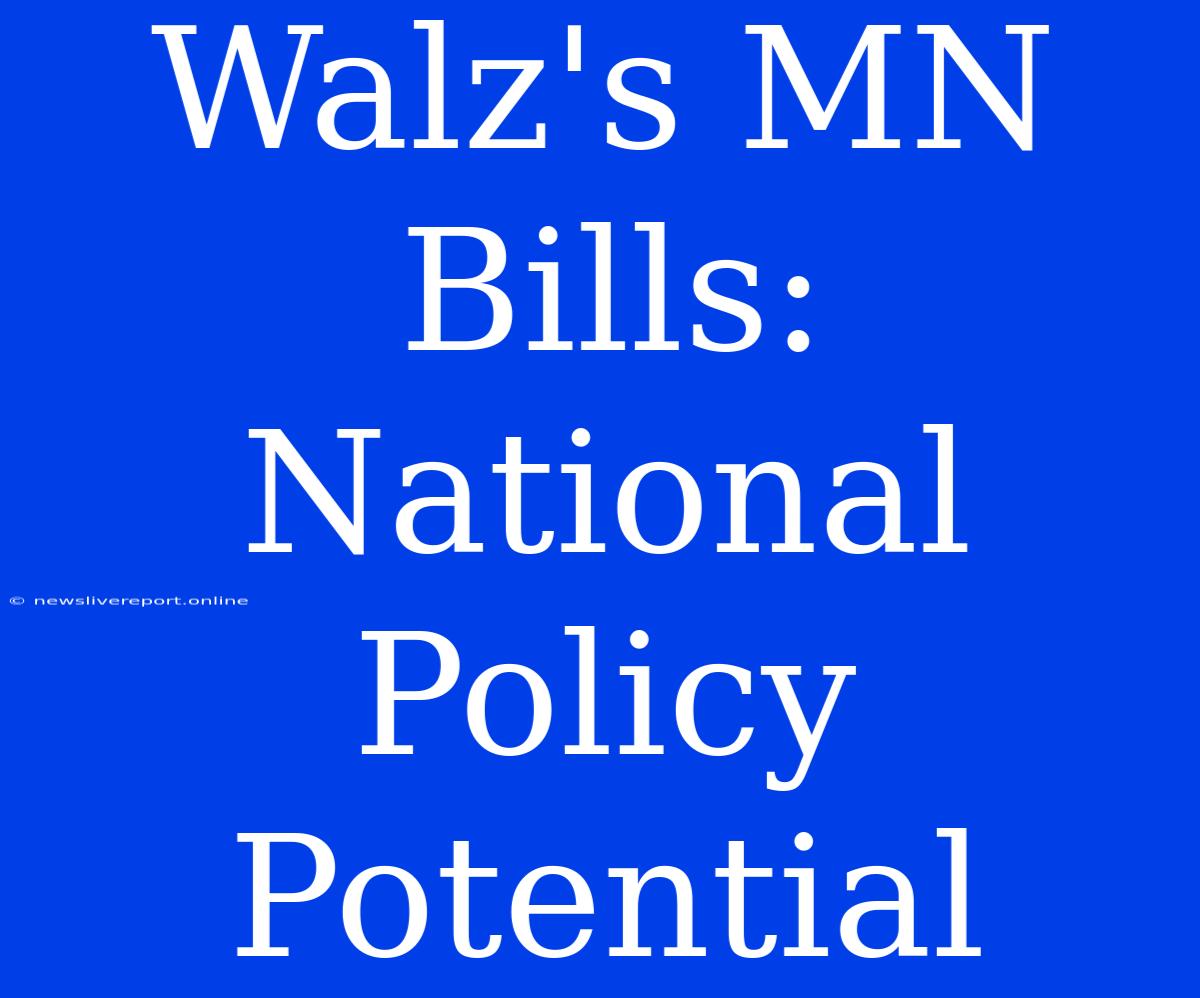Walz's MN Bills: National Policy Potential?
Minnesota's Governor Tim Walz has been making waves with his ambitious legislative agenda, pushing forward several bills with the potential to set a national precedent for progressive policies. While many of these initiatives are focused on issues specific to Minnesota, they hold broader implications for the national political landscape.
Here are some key bills and their potential national impact:
1. Paid Family and Medical Leave:
Walz's proposed "Paid Family and Medical Leave Act" would provide 12 weeks of paid leave for new parents, those caring for a sick family member, or individuals dealing with their own serious health condition.
- National Impact: This bill could serve as a model for other states looking to implement similar policies. It could also push the federal government to consider national paid leave legislation.
2. Universal Childcare:
Walz has proposed a bill that would provide affordable, high-quality childcare for all families, regardless of income.
- National Impact: This could set a precedent for other states to adopt universal childcare programs, addressing a pressing need for affordable and accessible childcare across the country.
3. Climate Change Action:
Walz has pledged to reduce Minnesota's greenhouse gas emissions by 80% by 2050. This plan includes initiatives to promote renewable energy and energy efficiency.
- National Impact: Minnesota's commitment to ambitious climate action could inspire other states to take similar steps, putting pressure on the federal government to adopt a national climate strategy.
4. Gun Safety Measures:
Walz has proposed several gun safety bills, including universal background checks, red flag laws, and restrictions on high-capacity magazines.
- National Impact: These bills, if enacted, could have a significant impact on national gun policy, particularly in the wake of recent mass shootings.
5. Education Funding:
Walz has proposed a significant increase in education funding, with a particular focus on early childhood education and addressing the teacher shortage.
- National Impact: This could inspire other states to prioritize education funding, particularly in early childhood education, which is often underfunded.
While these bills face opposition from some lawmakers, their potential national impact is significant. If passed, they could set a new standard for progressive policymaking in the United States, influencing policy debates at both the state and federal levels. It remains to be seen how these bills will ultimately be implemented, but their potential to shape national policy is undeniable.

